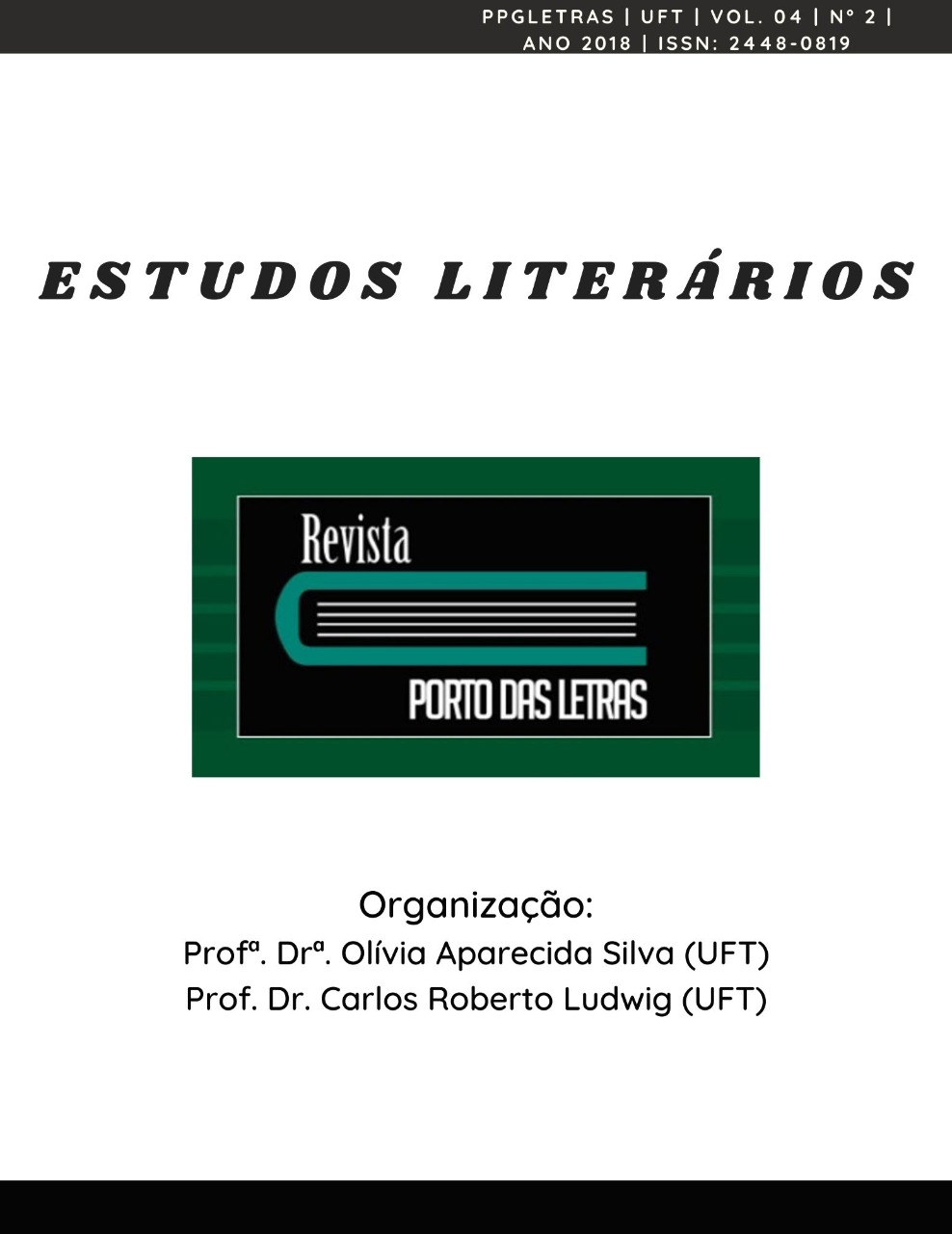Inwardness and Subjectivity in Early Renaissance
Abstract
This essay proposes to analyse the concepts of inwardness and subjectivity based on the ambiguities implied in early Renaissance. The analysis is based on Maus’ and McGinn’s assumptions on inwardness, as well as Lacan’s mirror stage. It reads this development as a result of the ambiguities of the mimesis of inwardness in some works by Shakespeare. He represented inwardness in the silences, non-said, gestures, pathos, and anxiety of the characters in the play, which constitute the rhetoric of inwardness in the play.
Literaturhinweise
ADELMAN, Janet. Suffocating Mothers: fantasies of maternal origin in Shakespeare’s plays, Hamlet to Tempest. New York: Routledge, 1992.
ARISTOTLES. La Poétique. Paris: Éditions Seuil, 1980.
AUERBACH, Erich. Mímesis: a representação da realidade na literatura ocidental. São Paulo: Perspectiva, 2007c.
COLLINS, Stephen L. From divine cosmos to sovereign state. Oxford: Oxford University Press, 1989.
COSTA, A. V. L. Visão e Verdade. Porto das Letras, ISSN 2448-0819, Vol. 01, Nº 01. Jan.-jun., 2015.
COYLE, Martin. The Merchant of Venice: contemporary critical essays. Londres: Macmillan: 1998. (New Casebooks)
DAMÁSIO, António. O erro de Descartes. São Paulo: Companhia das Letras, 1996.
DUBOIS, Claude-Gilbert. O imaginário da Renascença. Trad. Sérgio Bath. Brasília: Editora da UNB, 1995.
DUBOIS, Claude-Gilbert. Problems of "Representation" in the Sixteenth Century. Poetics Today, Medieval and Renaissance Representation: New Reflections, Vol. 5, No. 3. (1984), pp. 461-478. Translated by Monique Briand-Walker. Duke University Press, in: http://www.jstor.org/stable/1772374. Accessed: 16/04/2012.
FREUD, Sigmund. Obras Completas. Rio de Janeiro: Imago, 2006.
GREENBLAT, Stephan. Renaissance Self-Fashioning: From More to Shakespeare. Chicago: The University of Chicago Press, 1984.
GREENBLATT, Stephen. Renaissance Culture and Psychoanalysis. Standford: Standford UP, 1984.
GREENBLATT, Stephen. Shakespearean Negotiations: The Circulation of Social Energy in Renaissance England. Berkeley & Los Angeles: University of California Press, 1988.
HOLLAND, Norman. Psychoanalysis and Shakespeare. New York and London: McGraw-Hill, 1966.
KANT, Immanuel. Critique of Judgment. Translated with Introduction and Notes by J. H. Bernard. New York: Dover, 2005.
KAPLAN, M. Lindsay & BEVINGTON, David (eds.). The Merchant of Venice: Texts and Contexts. New York: Palgrave, 2002
LACAN, J. Escritos. Rio de Janeiro: Jorge Zahar, 1998.
LAPLANCHE & PONTALIS. Vocabulário da Psicanálise. São Paulo: Martins Fontes, 2000.
LUDWIG, C. R. Adaptação e Re-Criação de Ricardo III, de Al Pacino. Porto das Letras, ISSN 2448-0819, Vol. 03, Nº 02. Jul.-dez., 2017.
LUKACHER, Ned. Daemonic Figures: Shakespeare and the Question of Conscience. Ithaca: Cornell University Press, 1994.
MARLOWE, Christopher. The Complete plays. Edited by Frank Romany & Robert Lindsey. London: Penguin, 2003.
MAUS, Katharine Eisaman. Inwardness and Theater in the English Renaissance. Chicago e London: University of Chicago Press, 1995.
McGINN, Colin. Shakespeare’s Philosophy: Discovering the Meaning behind the Plays. New York: Harper, 2007.
SHAKESPEARE, William King Lear. Edited by Bernard Lott. Essex: Longman, 1987.
SHAKESPEARE, William. Complete Works. Londres: Wordsworth Editions, 2007.
SHAKESPEARE, William. Hamlet. Edited by Harold Jenkins. London: Arden, 1997.
SHAKESPEARE, William. Julius Caesar. Edited by Norman Sanders. London: Penguin, 1976.
SHAKESPEARE, William. Richard III. Edited by Antony Hammond. New York: Matheun, 1997.
SHAKESPEARE, William. Shakespeare's Sonnets. Edited by Katherine Kuncan-Jones. Croatia: ITP, 1997.
SHAKESPEARE. Macbeth. Edited by Kenneth Muir. London: Arden, 1997.
SHAKESPEARE. The Merchant of Venice. Edited by Barbara Mowt & Paul Werstine’s. New York: Washing Square Press, 1992.
SHAKESPEARE. The Merchant of Venice. Edited by J. H. Walter. Londres, Melbourne, Toronto: Heinemann, 1960.
SHAKESPEARE. The Merchant of Venice. Edited by Lindlay Kaplan & David Bevington. In: KAPLAN, M. Lindsay & BEVINGTON, David (eds.). The Merchant of Venice: Texts and Contexts. New York: Palgrave, 2002
SHAKESPEARE. The Merchant of Venice. Edited by Walter. London: Heinemann, 1960.
SHAPIRO, James. Shakespeare and the Jews. New York: Columbia University Press, 1996.
SPENSER, Theodore. Shakespeare and the nature of man. New York: Collier, 1966.
TOULMIN, Stephen. The Inwardness of Mental Life. Nora and Edward Ryerson Lecture. Chicago: University of Chicago, 1979. The Ryerson Lecture, given April 30, 1979 in the Glen A., Lloyd Auditorium of the Laird Bell Law Quadrangle. Acessed on http://www.sylloge.com/inwardness.html. Acessed February, 1, 2010.
WILLIAMS, Neville. Elizabeth the first, Queen of England. New York, Dutton, 1962.
Downloads
Veröffentlicht
Zitationsvorschlag
Ausgabe
Rubrik
Lizenz
Os autores concordam com os termos da Declaração de Direito Autoral, que se aplicará a esta submissão caso seja publicada nesta revista (comentários ao editor podem ser incluídos a seguir).

